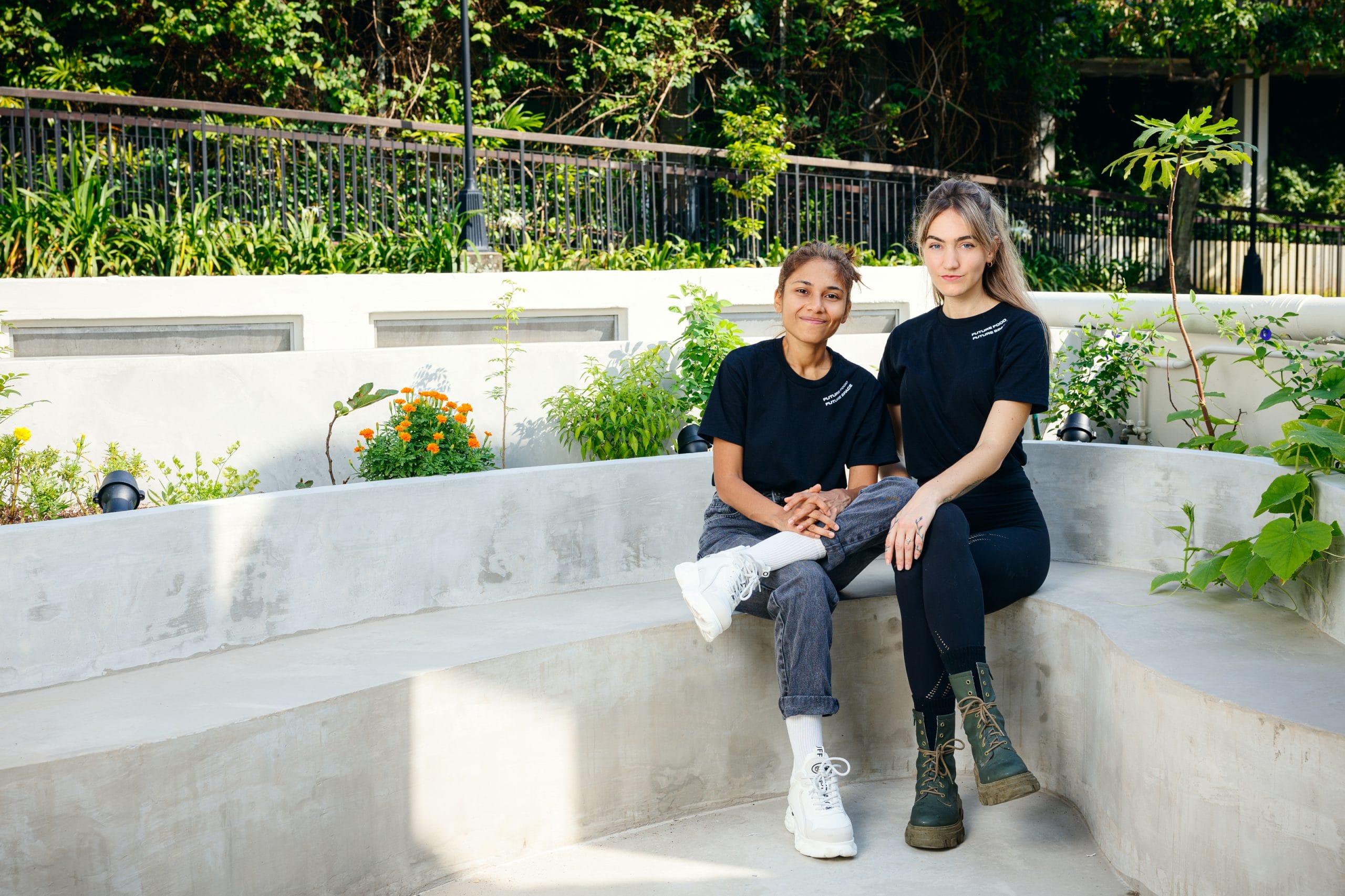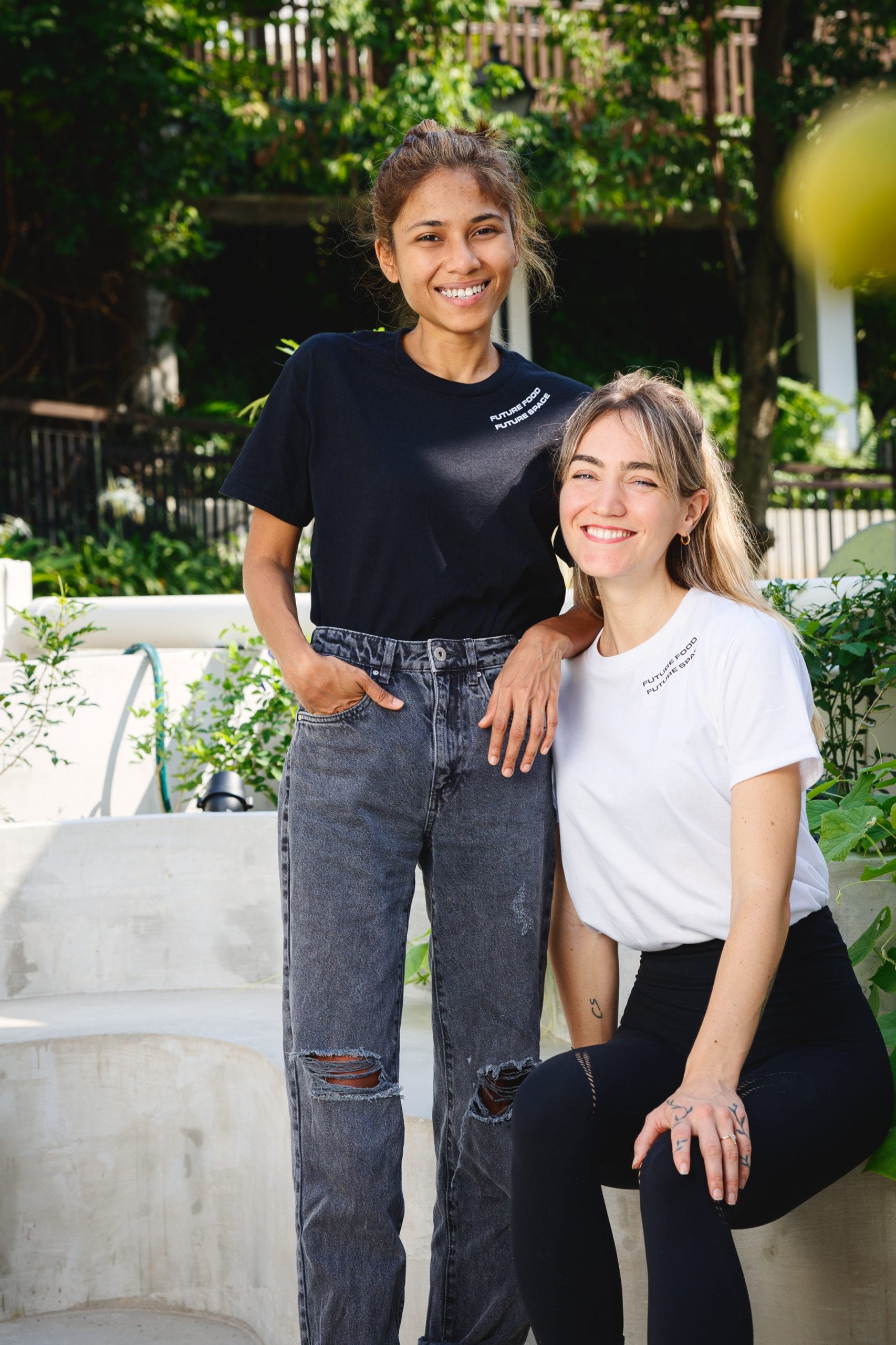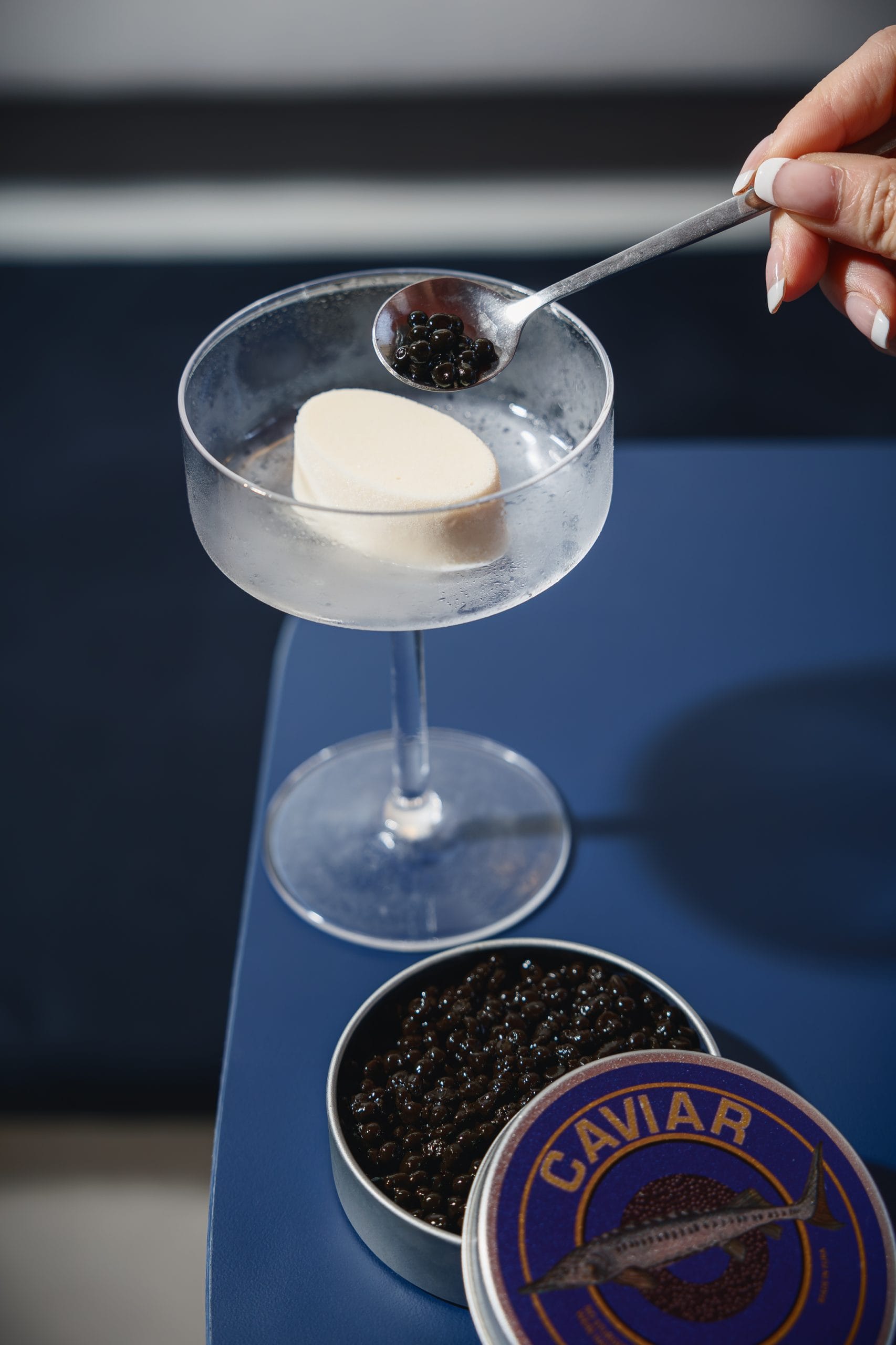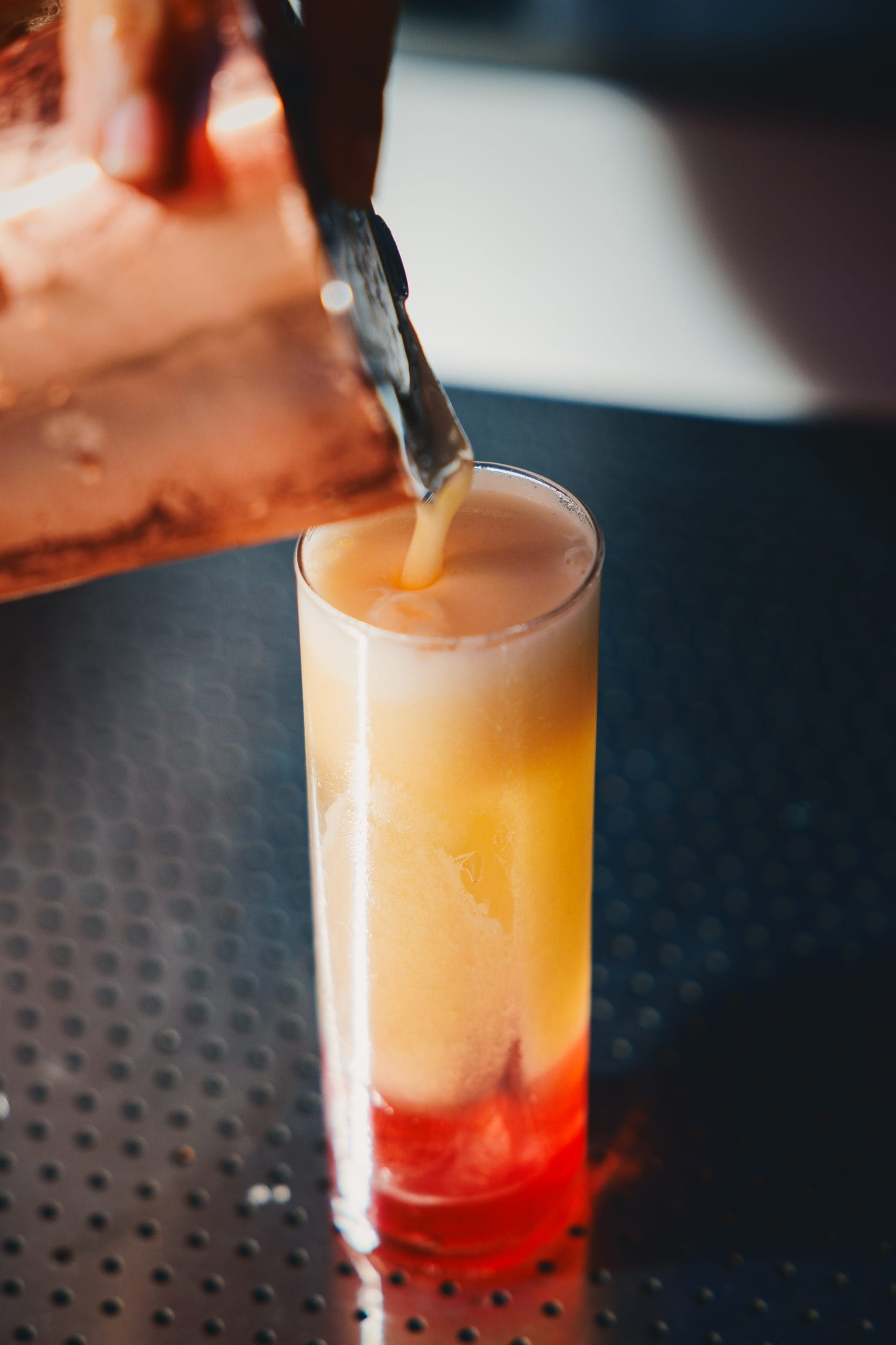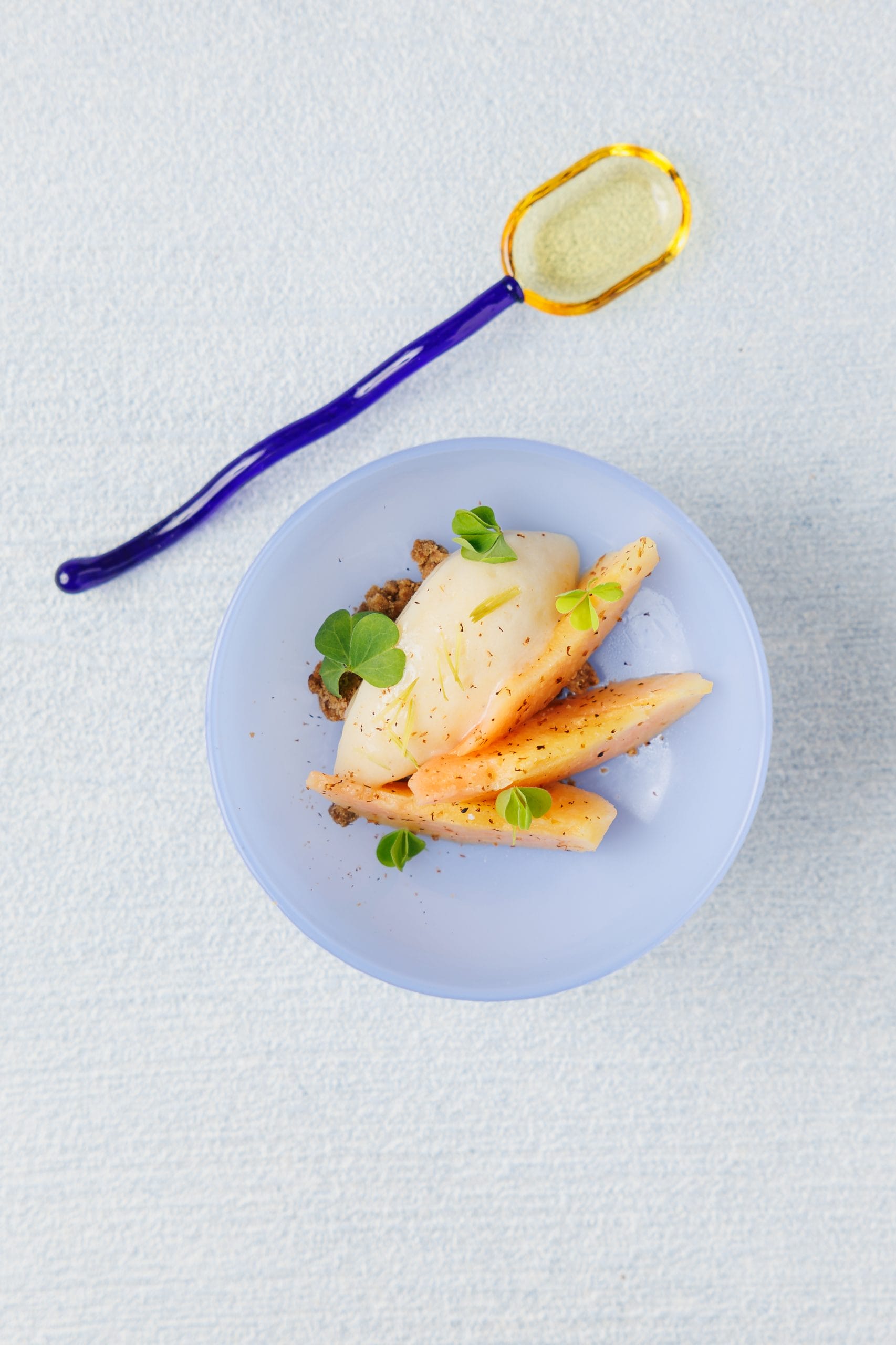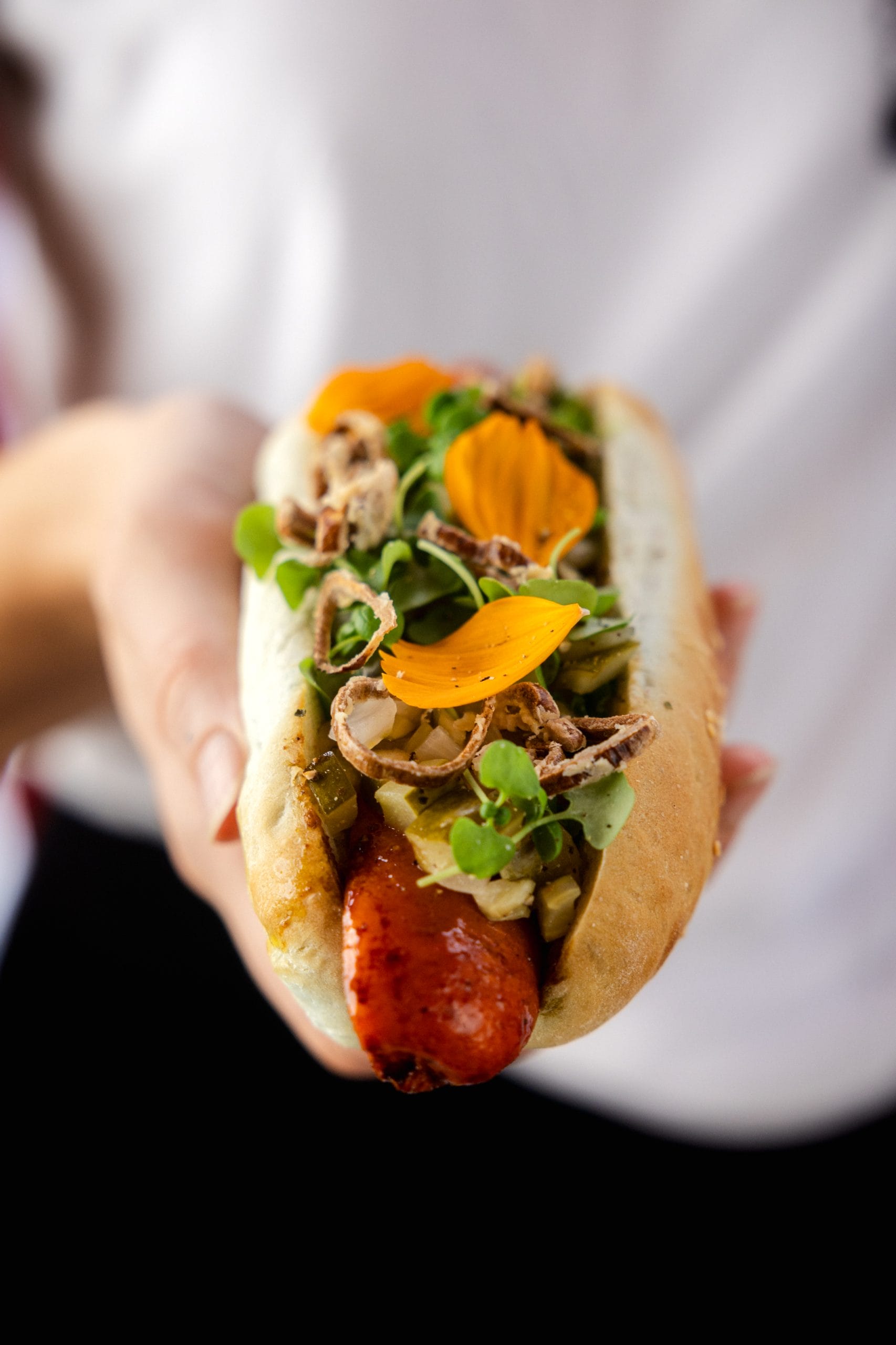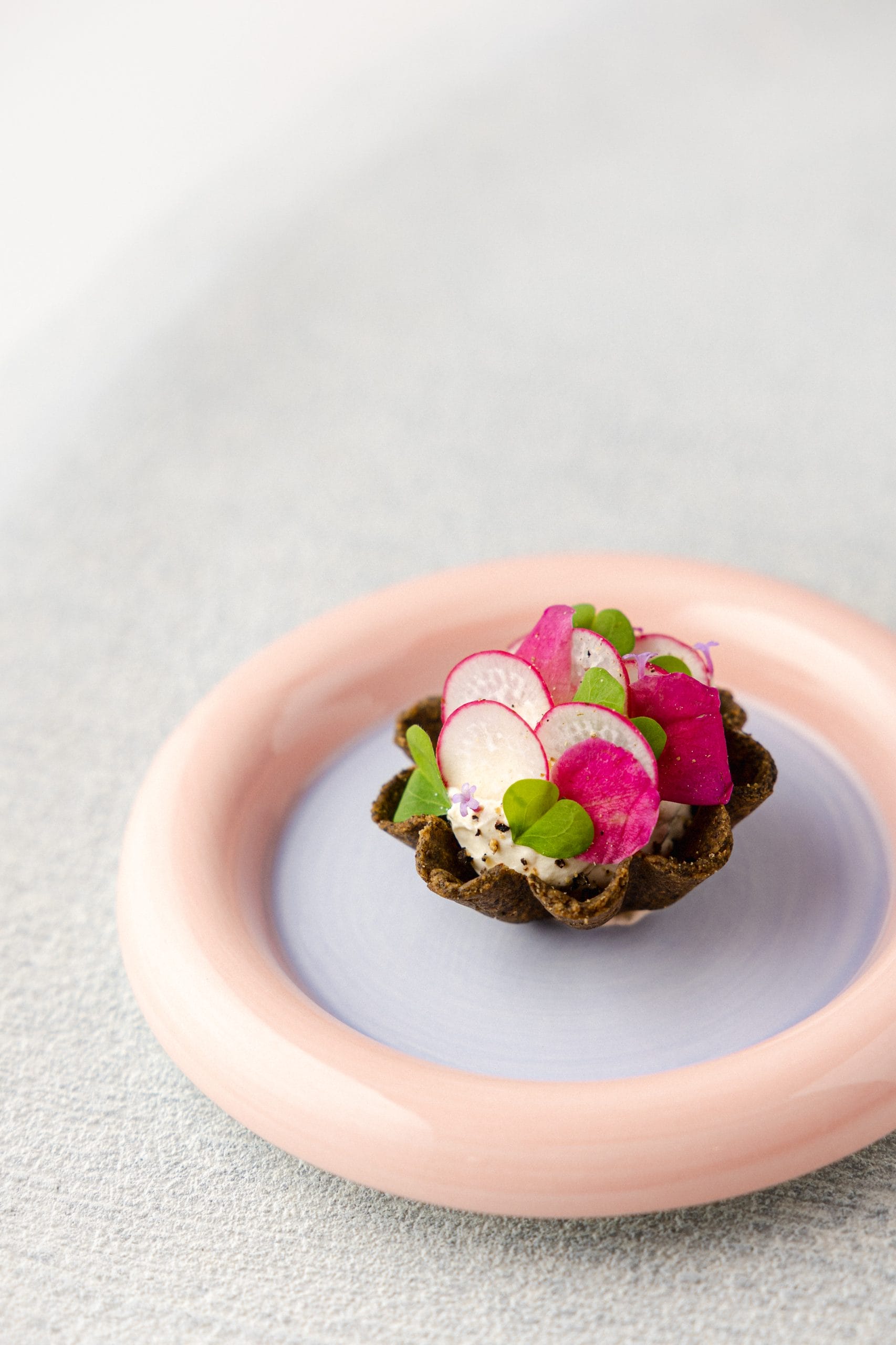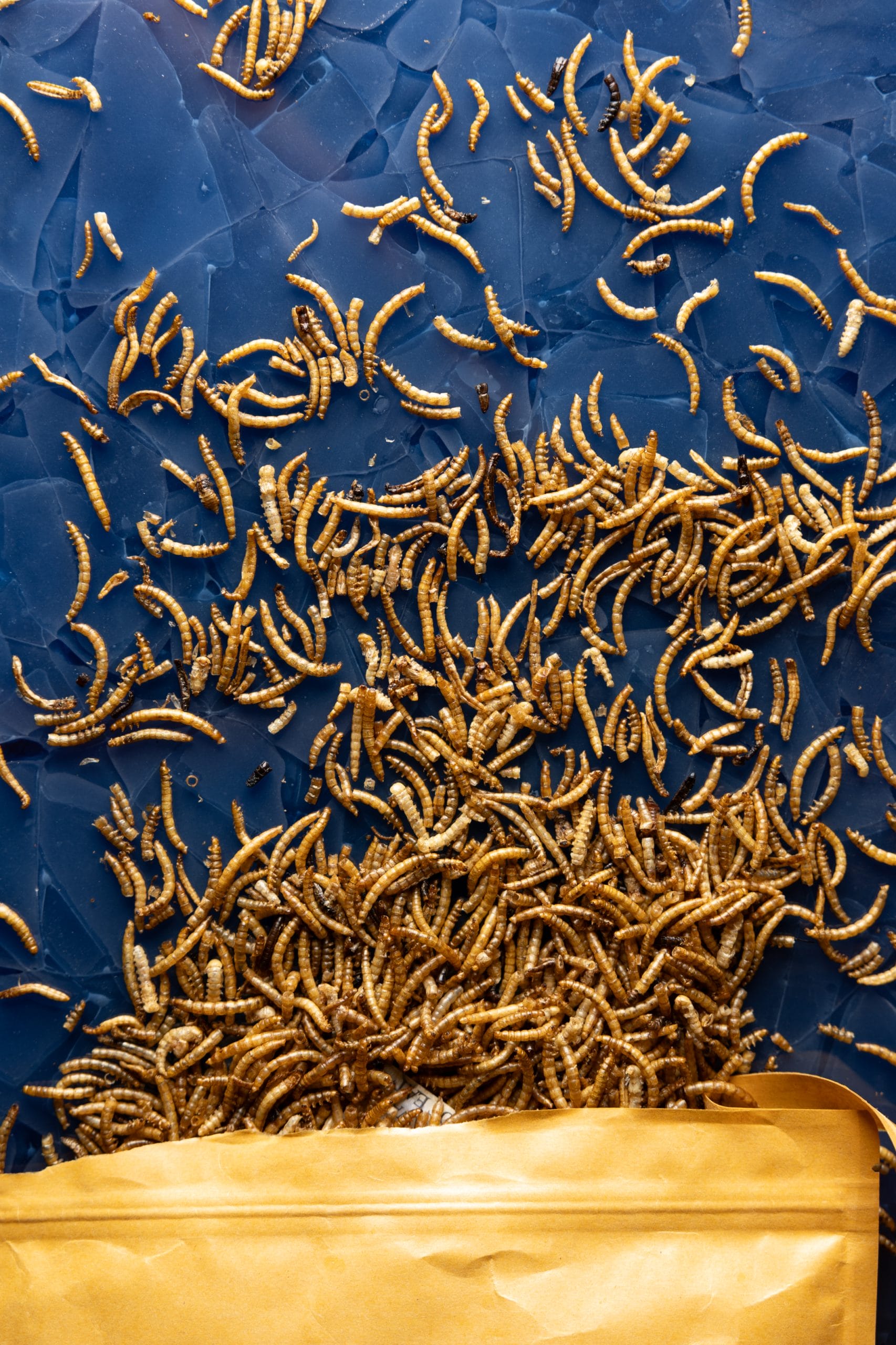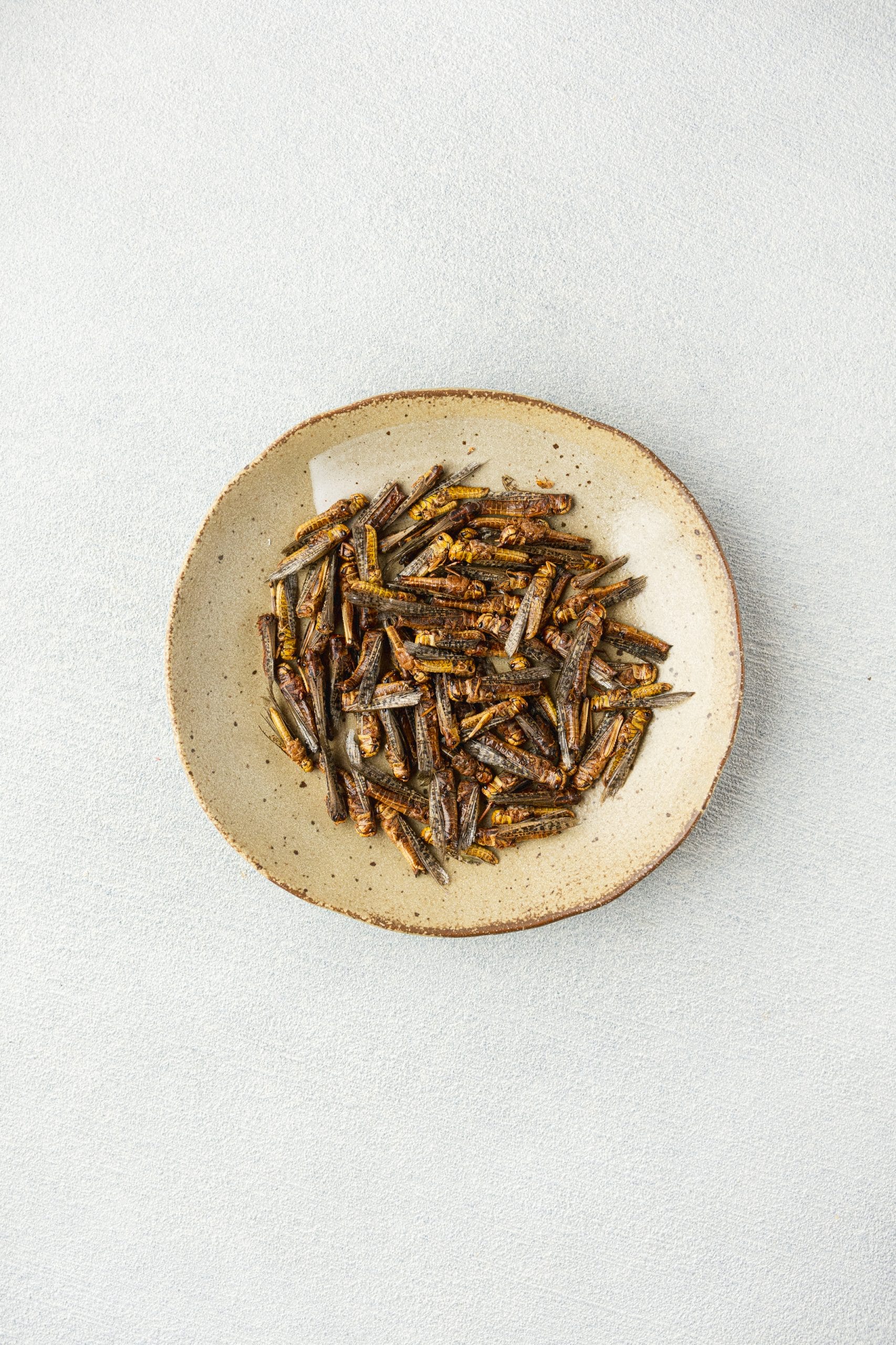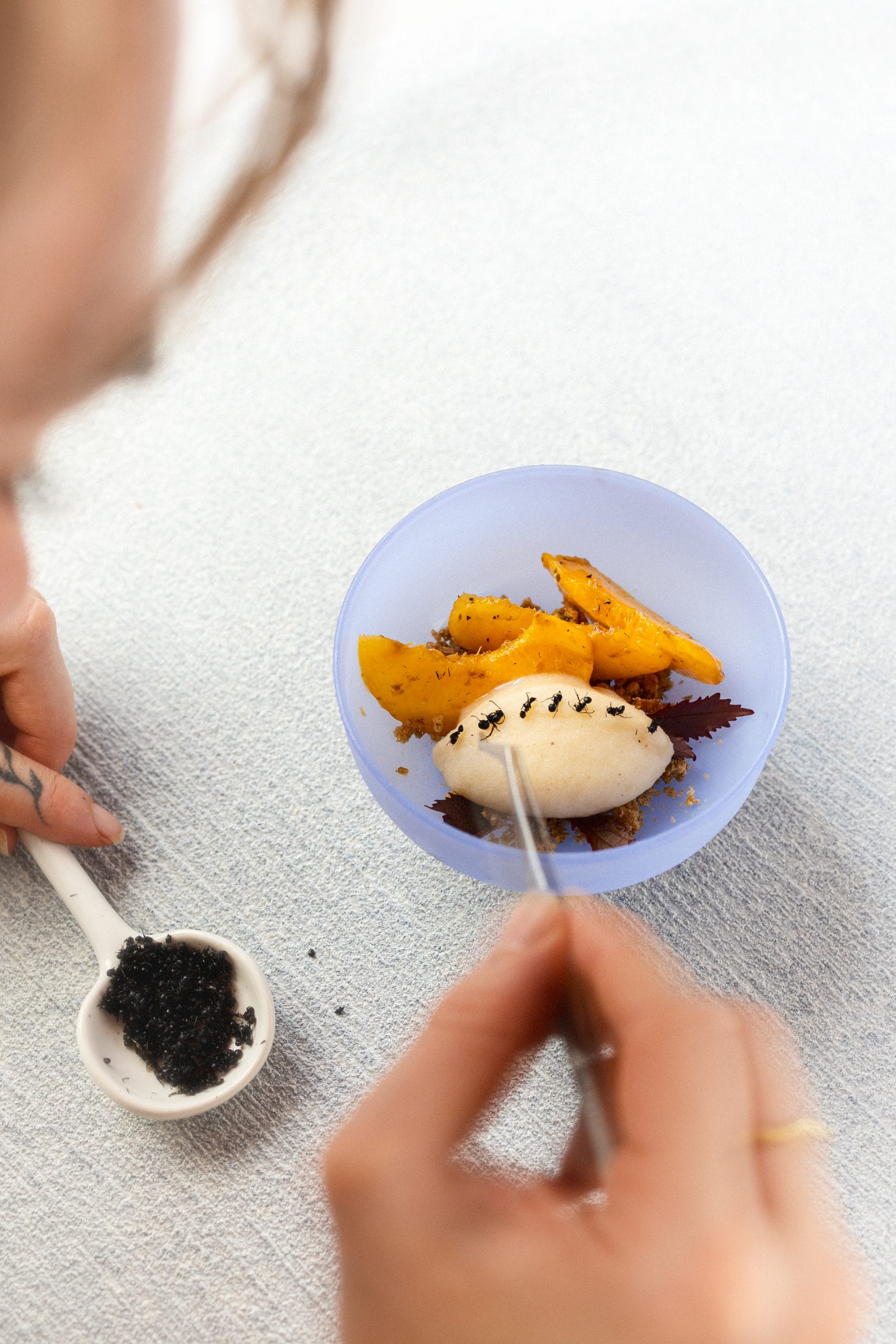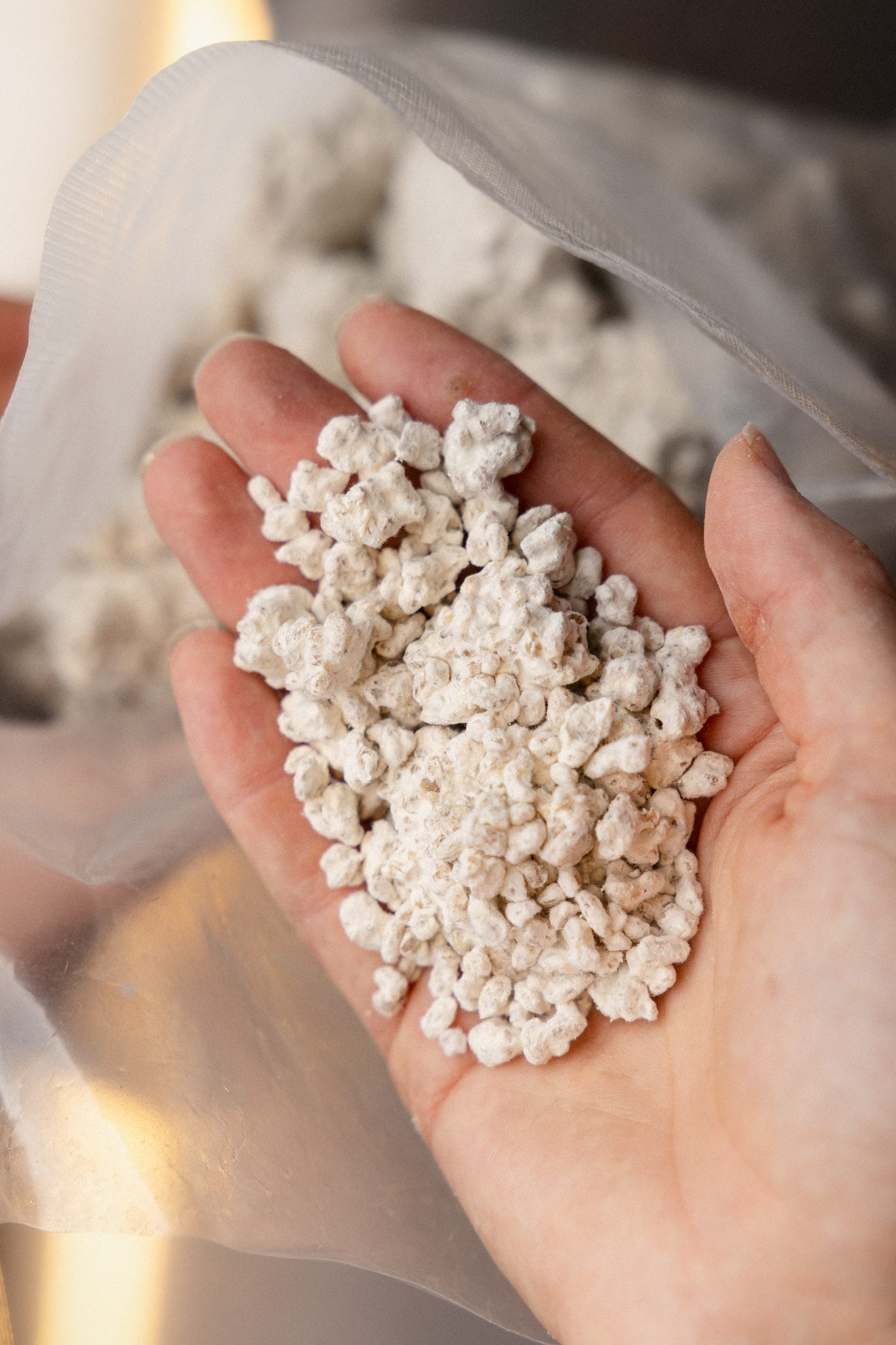 Sasha Wijdessa and Christina Rasmussen are trying to change the world one jellyfish martini at the time, and then some.
Sasha Wijdessa and Christina Rasmussen are trying to change the world one jellyfish martini at the time, and then some.
Fura seems like most of its peers along the Telok Ayer streets. But there’s no facade or elaborate frills surrounding the 40-seater gastrobar. With a dining and drinks menu that embed the idea of working with excess, humble insect proteins and “ugly” produce comprise its offerings, nothing too out of the ordinary for the seasoned duo, who have previously conceptualised Mallow, a pop-up at InterContinental Singapore.
It’s easy to just box Fura up as a concept championing “sustainable”. But the brainchild of Sasha Wijidessa and Christina Rasmussen holds its ground to represent a new class of dining destinations — a collaboration that goes beyond the couple, transcending generational conventions of consumption. At the core of it, Fura’s big goal finds itself rooted in collaboration. “Success for us goes beyond just Fura. There is strength in numbers, and your impact is as much as whatever your reach is. Whatever we’re doing now may only reach forty seats a night. If we can take the ethos and identity of Fura and take it beyond our space, that would be so much more impactful.” And it is visible. Their demeanours shift serious when discussing all the accoutrements that dot the space. Which include a recycled, compressed glass bar, upcycled Panelogue wood stools and coasters fabricated from excess oyster shells from neighbouring Humpback. After all, the duo who have deep roots in the service industry understand just how important community is in F&B.
“Collaborative survival” is the ultimate aim. In progressing an aligned vision of bettering the world, the ideals that birthed Fura may seem intimidating, or behemoth to some. At present, there are only a handful of entrepreneurs who have attempted to accomplish such a radical philosophy. The road is daunting — especially when contextualised in Singapore’s landscape of booming staffing and rental costs, generally conservative palates and a general struggle in upkeeping a F&B start-up. But geared with a community they’ve spent years cultivating and experience at some of the best concepts in the world, Wijidessa and Rasmussen are well-qualified and equipped to take on the challenge of reinventing and bettering drinking and dining.
Rasmussen has chalked up years of experience at Denmark’s NOMA; beginning as a stagiaire before progressing to earn the title of Head Forager. Wijidessa, on the other hand, had roots at local establishment Operation Dagger, where she then got scouted to Copenhagen to join the Empirical Distillery team. It was there where the partners got acquainted, and then began dreaming up the concept that would be Fura today. The former now leads the dining aspect, while the latter handles the bar. “It’s very personal to us,” said Christina, whose previous job scope included harvesting wild ants and foraging from the forests of Copenhagen, a position that allowed her a front-row seat to the effects of deforestation and drought.
Wijidessa and Rasmussen are individuals who abide and uphold their ethos, an observation that is clear to the Men’s Folio team when we meet them, and one that leaves no room for speculation on cashing in on the growing sustainability buzz. “Intention is so important. Sustainability is so hot; it’s a buzzword, but its nota checklist. You can’t just tick a few boxes, it’s something you incorporate into your business that you practice every single day. And its a lot more work. And so if your intention is not genuine, you’ll never follow it through,”says Wijidessa.
Their personal philosophies have made for humorous anecdotes — like having to lug hordes of groceries home sans bags, or when they scuffled with a hawker centre auntie when she refused to let them use their own containers for takeaways. But there’s a sincerity that cuts through their tongue-in-cheek relays.
“We can think beyond ourselves. We could blame the generations before us for the climate crisis that we’re in right now, but it is unfair. They weren’t in the position to consider beyond their needs. It’s also geographical.It would be unfair to expect other non-First World communities, in their position, to try to consider plant-based meats in a bid to be sustainable when we are more privileged.” When it comes to making a change, they transcend the expected pushiness and preachiness that some may synonymise with other advocates. Wijidessa acknowledges the difficulty in attempting a resolute integration of Earth-consciousness within one’s daily life, as well as the ingrained rituals of eating and drinking that prevail in Asian households — recounting her family’s culture-backed obstinance for generous serving sizes and then continued consumption of animal protein.
“It’s too narrow to think that there’s only one right way to be sustainable. The reality is, nobody is perfect in doing it. It’s really about your effort. As long as you try and do your best, that’s more important than anything else.” Similarly, Fura’s decision not to skew meat-free reflects this thought. “It’s always about trend versus intention. And what that is adding substance to what you’re trying to do and it will give you a lot more longevity in how you go about it.”
Once you’re done with this story, click here to catch up with our November 2023 issue.

